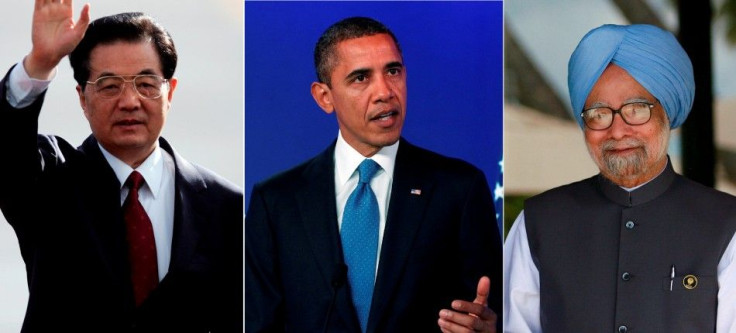China is India’s ‘De Facto Competitor’: How Will Obama Tackle Tricky Asia?

India's recent military strategies, involving the major repositioning of armed forces and the imminent procurement of a fighter aircraft to replace the MiG-21 interceptor, are being viewed as a bold move in reshaping its political and military positions.
According to an article published in the People's Liberation Army (PLA) Daily, the China-based media outlet for the People's Liberation Army, India's new military strategies are an apparent pointer towards India treating China as a de facto competitor. The article suggests that while China has always adhered to the principle of peaceful rise, its behavior has been misinterpreted by some countries as rising threat.
That response came a week after the Indian Ministry of Defense announced a $13 billion military expansion plan, which is the biggest such to date. The project looks to deploy an additional 90,000 personnel and create four new Armed Forces divisions along the border between India and China. Were this project to be completely executed, it could become the largest military mobilization since the Sino-Indian conflict of 1962.
In addition, the Indian Air Force (IAF) is in the final phase of what could well be one of the world's largest defense deals; the country is in the process of selecting between the Eurofighter Typhoon and the French Dassault Rafale, for a IAF contract in the region of $20 billion.
Furthermore, it has been barely a month since the Indian government deployed a regiment of BrahMos supersonic cruise missiles on the Chinese border and the government is now pursuing its first joint Air Force and Naval exercises plan with yet another Asian power, Japan.
A strong Japan could play a positive role in maintaining the strategic balance in the region, suggested the former Indian ambassador to Japan, Hemant Krishan Singh, at a discussion on the U.S.-Japan alliance. In addition, Sheila A. Smith, a senior fellow with the U.S.-based Council on Foreign Relations, said Japan's strategic discomfort has been growing amid the rise of China in recent years.
The above discussion, which was held just weeks ahead of a trilateral dialogue involving the U.S., India and Japan, emphasized India's roles as a positive balancer in Asia.
The West's vigilance and confinement of China's rise are increasing. One of its means is to take advantage of China's conflicts and issues with its neighboring countries, and instigate and radicalize issues to exhaust China's energy, resources and strategic projection, said Fu Xiaoqiang, an expert on South Asian studies at the China Institutes of Contemporary International Relations, as quoted in the China Daily.
The Chinese government hasn't commented on the matter so far. The country ranks as the U.S.' second-largest mutual trading partner, despite having some tensions in their diplomatic relations, is also a major credit-giving nation and the largest foreign holder of U.S. public debt, has been vocally critical about the Obama administration's fiscal policy and deficits.
Its scathing criticism of the U.S., in the wake of S&P's credit rating downgrade drew international attention. Among the statements delivered, were those suggesting that the U.S. must stop its addiction to debt and use common sense in pursuing fiscal balance and learn to live within its means. It also warned the U.S. government that it would have to come to terms with the painful fact that it could no longer simply borrow money to resolve financial problems of its own making.
The trilateral dialogue between the U.S., India and Japan, in the context of the Washington's multifaceted relations with China, could be viewed as a deciding, to a large extent, the direction the country pursues when deciding on its political agenda in Asia.
© Copyright IBTimes 2024. All rights reserved.





















